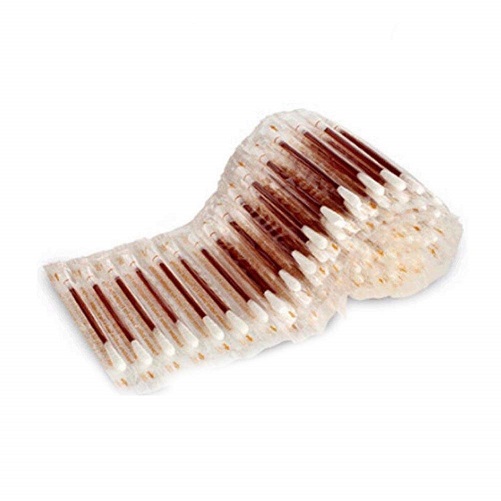I've tried this iodine test - I use Lugol's iodine in some microscope work (staining bacteria) so I always have some kicking about on a shelf. It seems a bit hit and miss to me, cos Lugol's will turn starch black if the starch is within about 2 miles of the stuff! I mash for 60 mins, take a few drops of the strained wort and add a single drop of iodine, it turns black, then brown, then clears. I think, bu**er this, I'll ferment it anyway. I end up with wort at 1040 at 20 DegC and I'm happy. Even more so about 3 weeks later!
Take a sample of wort, cleared of as much grain as possible, place this in a white porcelain dish, you can buy special starch test dishes. Add a drop of iodine, any iodine will do. "Lugol's" is elemental iodine dissolved in potassium iodide in water. But you can use tincture of iodine as well. If there is any starch there, it will turn black. As the iodine dilutes in the wort, it will turn brown and finally dis-colour.
To be fair, Iodine is an excellent indicator of starch (the best for a rough test of starch), but I bet you could mash for 24 hours and still find a bit of starch in the mashed grains/liquid.
I'd be interested if anyone has a more accurate quantitative test for starch though? -- without an entire lab available --








































 I like that idea and will definitely give it a try, it seems more useful than trying to detect starch when you flipping well know it's there right from the start! But being able to predict what I should be getting before-hand, then a simple check of the gravity seems a good 'un to me. Do you guys check at a specific temp, i always try to chill an OG test down to 20 DegC - 68 DegF before testing - I read that somewhere - does that sound about right, please?
I like that idea and will definitely give it a try, it seems more useful than trying to detect starch when you flipping well know it's there right from the start! But being able to predict what I should be getting before-hand, then a simple check of the gravity seems a good 'un to me. Do you guys check at a specific temp, i always try to chill an OG test down to 20 DegC - 68 DegF before testing - I read that somewhere - does that sound about right, please?